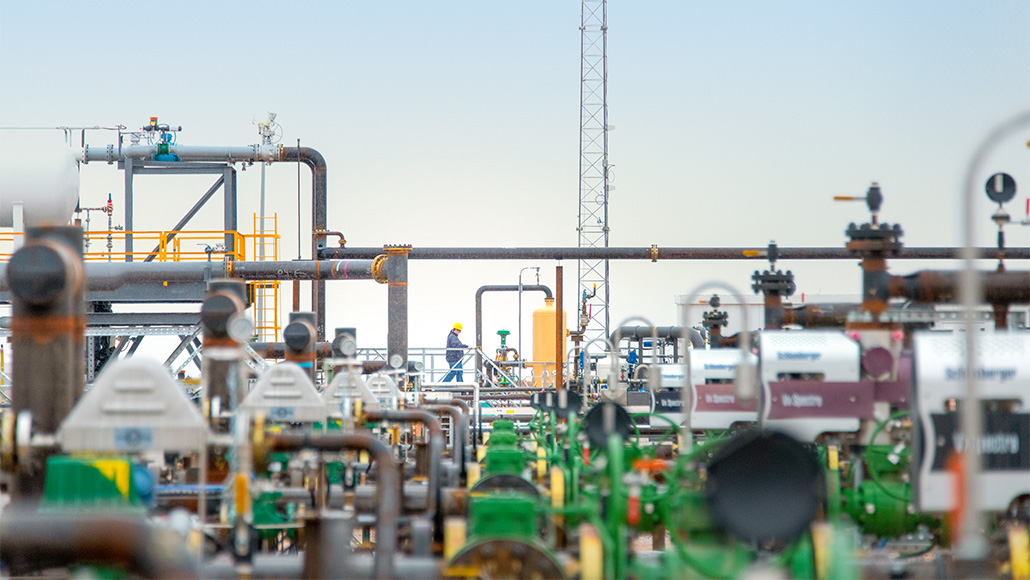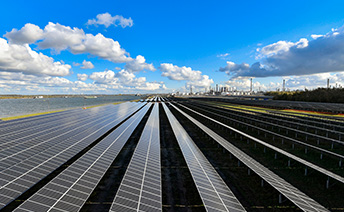Case study Tackling methane emissions
Methane continues to be a major focus of international climate policy initiatives. When methane is released into the atmosphere it has a much higher global warming impact than CO2. Reducing emissions of this powerful, short-lived greenhouse gas is considered one of the most effective short-term actions to keep the 1.5°C goal within reach.
Shell has been at the forefront of efforts by the oil and gas sector to reduce methane emissions. We have committed to eliminate routine flaring from our upstream operated assets by 2025 – five years ahead of the deadline adopted by most companies in our sector. Our target to keep methane emissions intensity below 0.2% was met in 2022 with Shell’s overall methane emissions intensity at 0.05% for facilities with marketing gas and 0.01% for facilities without marketing gas.[1]
We support international initiatives to tackle methane emissions. These include:
- The World Bank’s Zero Routine Flaring by 2030 initiative, launched in 2015. As a signatory to the initiative and a participant in the World Bank’s Global Gas Flaring Reduction Partnership, we encourage others to support ending routine flaring by 2030 or sooner. We advocate ending routine flaring by 2025 in line with our own commitment.
- The Methane Guiding Principles, a coalition initiated by Shell in 2017. This coalition convenes industry and civil society and aims to reduce methane emissions along the full gas value chain.
- The Global Methane Alliance, launched in 2019. This aims to significantly reduce methane emissions from the oil and gas sector by 2030 by supporting countries in setting ambitious methane reduction targets for the oil and gas industry, and in pursuing them.
- The Global Methane Pledge, launched at COP 26 in 2021, which aims to reduce global methane emissions from all sectors by 30% by 2030 from 2020 levels. More than 150 countries have now joined.
Some notable examples of our advocacy on methane around the world in 2022 were:
- Helping to develop the oil and gas sector toolkit for the Global Methane Pledge, under the Methane Guiding Principles, and encouraging others to participate in its development as well. The toolkit connects policymakers and regulators with resources and institutions to support methane policy and regulation development in countries that joined the Global Methane Pledge.
- Participating in the launch of the Aiming for Zero Methane Emissions Initiative from the Oil and Gas Climate Initiative, of which we are a member. This aims to virtually eliminate methane emissions by 2030.
- Supporting an ambitious and consistent EU policy framework covering the full range of methane emissions priorities as identified in the EU Methane Strategy.
- Responding to the U.S. Environmental Protection Agency’s consultation on methane emissions regulation, in support of regulations for existing sources, as well as new, reconstructed and modified sources. We also supported the Inflation Reduction Act of 2022, including a workable methane fee.
- Continuing to work with industry associations in Australia on member actions to reduce methane emissions, as well as supporting methane reduction policies. We welcomed the Australian government joining the Global Methane Pledge.

[1] Marketed gas is that which has access to market.










